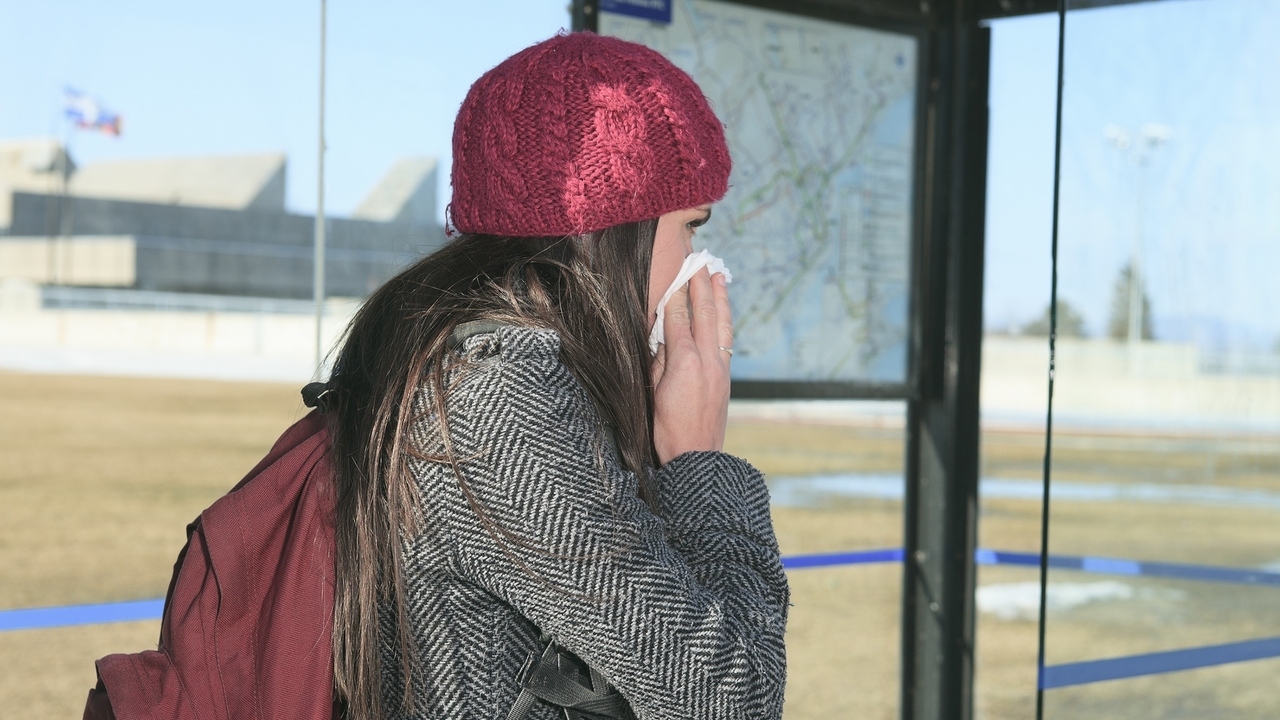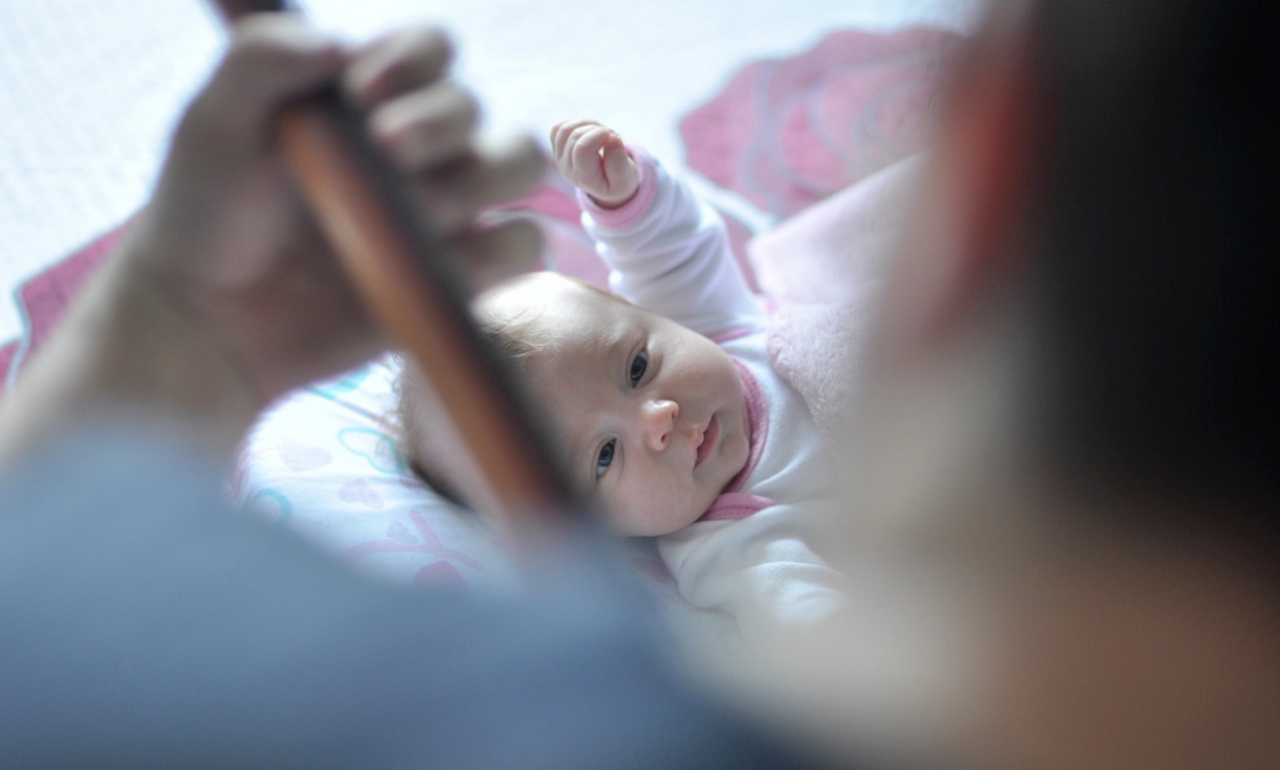What is Bronchiolitis?
Bronchiolitis is condition that affects the bronchioles, which are the tiny airways that lead to the lungs. The bronchi branch off from the main airway (trachea) to the lungs - one to the left lung, one to the right. At the lung, the bronchi branch off into minute air passages, which distribute air throughout the lungs. These airways become inflamed, swollen, and filled with mucus. Because a baby's bronchioles are so small, it is easier for the build-up of mucus to affect their breathing.
Bronchiolitis affects infants usually between the ages of 3-6 months and usually between October and March.
This condition has several causes, the most common of which is respiratory syncytial virus (RSV), but bronchiolitis can be caused by the common cold virus or the flu. The condition is contagious and can be contracted through inhaling tiny air droplets, or touching a contaminated surface then touching your ears, nose, or mouth.
Symptoms of Bronchiolitis
Depending on the type of virus your baby has been exposed to, symptoms may appear after several days to up to a week after exposure. In total, the infection usually lasts about 12 days although babies who develop a more severe case may have a cough that lasts for weeks. Generally, though, symptoms will peak on the second or third day after the child starts coughing or having difficulty breathing, and then start to improve after that.
The initial symptoms are similar to those of a cold:
- runny, stuffy nose
- dry cough
- slight fever
- loss of appetite.
Symptoms usually worsen or peak after two or three days to:
- a more persistent cough
- faster, more shallow and labored breathing
- increased heart rate
- may refuse to feed altogether
While most cases are minor and can be treated/managed at home, about two percent of babies can develop severe bronchiolitis requiring hospitalization. If your baby is experiencing any of the below symptoms, he or she should see a doctor right away:
- has had less than half the usual amount of milk over a 24-hour period
- shows signs of dehydration - goes 6 hours without having a wet diaper, dry mouth and lips
- fever above 100.4
- is sleepy and lethargic
- is struggling to breathe
If your baby's symptoms escalate to any of the below difficulties, he or she needs to be taken to the emergency room:
- wheezing
- flared nostrils
- the skin between the ribs, above the collarbone, or below the rib cage appears to suck in with each breath
- the baby grunts or tightens tummy muscles when breathing
- lips and fingernails turn blue
- respirations are faster than 60 breaths per minute
- the baby stops breathing for a few seconds at a time.
Risk Factors for Bronchiolitis
Bronchiolitis is more common in male babies, babies who were not breastfed, and babies who live in crowded conditions (where there is more chance of spread of viruses). Attending day care and exposure to cigarette smoke can also increase the chances of a baby developing bronchiolitis. Conditions such as prematurity, prior chronic heart or lung disease, and weakened immune systems may also mean a baby will develop bronchiolitis.
Kidshealth.org says: "Kids who have had bronchiolitis may be more likely to develop asthma later in life, but it's unclear whether the illness causes or triggers asthma, or whether children who eventually develop asthma were simply more prone to developing bronchiolitis as infants."
Treatment of Bronchiolitis
Bronchiolitis is one of those things you just have to wait for it to run its course, so treatments in most cases are focused on managing the symptoms. Since decongestants are not recommended for children under the age of 6 and particularly for infants, here are a few simple tips from www.babycentre.co.uk:
1) Encourage your baby to take extra breast or bottle feeds. If your baby is formula-fed or on solids he can have water too. He may not want to feed for long if his breathing is labored, so offer short, frequent feeds. This will prevent him from becoming dehydrated and bring down his fever if he has one [pedialyte is a great alternative as it also provides vitamins and energizing electrolytes].
2) You can give your infant acetaminophen or ibuprofen over the age of three months. Although ibuprofen is not the preferred analgesic, it's often more effective on bringing down a fever and its anti-inflammatory properties mean it will also soothe a sore throat which will make it easier to feed.
3) If your baby is having trouble feeding with a stuffy nose, hold or sit him as upright as possible during feeds. You can also try nasal saline drops, which may help unblock his nose. The drops are available at most pharmacies and should be applied 15 minutes before a feeding.
4) Inhaling steam may help loosen your baby's blocked airways and relieve his cough. One safe option is to take your baby into the bathroom with you, close the door, and run a hot shower. You will need to change him into dry clothes afterward.
These are simple remedies for alleviating symptoms that will be effective in many cases. However, if your baby begins to experience any of the more serious symptoms listed above, do not hesitate to get your baby to a hospital.
Sources: http://kidshealth.org; www.mayoclinic.com; www.babycentre.co.uk






Add a CommentComments
There are no comments yet. Be the first one and get the conversation started!